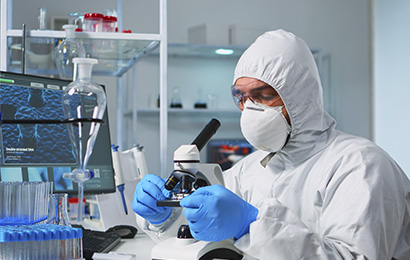We value your feedback! Share your thoughts and follow us.
We value your feedback! Share your thoughts and follow us.



Are you interested in pursuing a career as a surgical assistant? If so, you may be wondering about the details of a surgical assistant course. A surgical assistant course provides you with the knowledge and skills needed to succeed in this important role. As you select to pursue a course, you can rest assured that you will be well prepared to assist surgeons in performing life-saving procedures.
In this course we cover Anatomy and Physiology, Medical Terminology, Surgical Procedures, and Infection control. As a surgical assistant, you can expect to work in a variety of healthcare settings including hospitals, surgical centers, and clinics.

Are you considering a career as a medical assistant? Do you want to know more about the details of a medical assistant course? Medical assistants are crucial members of the healthcare team, responsible for both administrative and clinical tasks. They work closely with doctors, nurses, and other healthcare professionals to ensure smooth operations in medical facilities. Becoming a medical assistant can be a rewarding career choice for those who are passionate about helping others and making a positive impact on the lives of patients.
So, what can you expect to learn in a medical assistant course? The curriculum typically covers a wide range of topics, including medical terminology, anatomy and physiology, medical office procedures, pharmacology, patient care, and more. Medical assistant course is the first step towards achieving your goal. By completing the necessary training and obtaining certification, you can embark on a fulfilling career in healthcare and make a difference in the lives of patients every day.

Are you interested in pursuing a career as a nursing assistant? If so, you may be wondering about the details of a nursing assistant course. A nursing assistant course typically covers a wide range of topics to prepare students for their roles as healthcare professionals. Some of the key subjects included in the course are:
• Basic nursing skills
• Patient care techniques
• Medical terminology
• Infection control
• CPR and first aid
• Communication skills
• Ethical and legal issues in healthcare
Nursing Assistants provide basic care to patients in hospitals, nursing homes, and other healthcare facilities under the supervision of registered nurses.
By pursuing a career as a nursing assistant, you can make a meaningful impact on the lives of patients and their families.
Nursing assistants, also known as nurse aides or CNAs (Certified Nursing Assistants), play a crucial role in the healthcare industry.

Are you interested in pursuing a career as an operational theater assistant? If so, you’ve come to the right place! Operational theater assistants also known as surgical technologists, play a crucial role in the operating room. They assist surgeons during surgical procedures by preparing the operating room, sterilizing equipment, and ensuring that everything runs smoothly.
Operational theater assistant course offered are as follows:
• Anatomy and Physiology
• Medical Terminology
• Surgical Instrumentation
• Sterilization Techniques
• Patient Care
• Surgical Procedures
• Clinical Practice
One of the most important aspects of an operational theater assistant course is the hands-on training that students receive. This practical experience is essential for developing the skills and knowledge needed to excel in the field.
Students will have the opportunity to practice assisting in simulated surgical procedures under the supervision of experienced instructors.
After completing an operational theater assistant course and obtaining certification, graduates can pursue a variety of career opportunities in hospitals, surgical centers, and other healthcare facilities.

Are you interested in pursuing a career as an anaesthesia assistant? Before we go into the course details, let’s first understand the role of an anaesthesia assistant. Anaesthesia assistants are essential members of the operating room team, working closely with anaesthesiologists to ensure the safety and comfort of patients during surgical procedures. They assist in administering anaesthesia, monitoring patients’ vital signs, and providing support throughout the surgical process.
When it comes to anaesthesia assistants courses, the curriculum typically covers a range of topics to prepare students for the responsibilities of the role. Some of the key areas that are commonly included in these courses are:
• Anaesthesia Techniques
• Patients Monitoring
• Pharmacology
• Medical Ethics and Legal Issues
• Clinical Practice
• Duration and Accreditation
Embarking on a career as an anaesthesia assistant can be a rewarding and fulfilling journey. By completing an anaesthesia assistants course, you can acquire the skills and knowledge needed to excel in this critical healthcare role. If you are passionate about patient care and thrive in high-pressure environments, then pursuing a career as an anaesthesia assistant may be the right path for you.

A lab technician course is designed to provide students with the necessary knowledge and skills to work in a laboratory setting. These courses typically cover a wide range of subjects, including biology, chemistry, microbiology, and medical laboratory procedures.
Students will learn how to perform various laboratory tests, analyze results, and maintain laboratory equipment. Additionally, they will also be trained in laboratory safety procedures and quality control measures.
Course Objectives
The main objective of a lab technician course is to equip students with the skills and knowledge required to work effectively in a laboratory environment. Students will learn how to conduct routine laboratory tests, interpret results, and report findings accurately.
They will also be taught how to use different laboratory equipment and perform maintenance procedures. By the end of the course, students should be able to work independently in a laboratory setting and contribute to the overall success of the lab.
Curriculum Details
The curriculum of a lab technician course typically includes both theoretical and practical components. Students will attend lectures, participate in laboratory demonstrations, and complete hands-on practical sessions. Some of the key topics covered in the curriculum may include:
• Basic laboratory techniques
• Biochemistry
• Hematology
• Immunology
• Microbiology
• Clinical chemistry
• Laboratory management
Career Prospects
After completing a lab technician course, graduates can pursue a career in various settings, including hospitals, clinics, research laboratories, and diagnostic centers.

Are you considering a career as an X-ray technician? If so, you’re in the right place! Before we go into the specifics of X-ray technician courses, let’s first understand the role of an X-ray technician. X-ray technicians, also known as radiologic technologists, are responsible for operating imaging equipment to take X-ray images of patients’ internal structures for diagnostic purposes. They work closely with radiologists to ensure high-quality images are produced for accurate diagnosis.
X-ray technician courses typically cover a wide range of subjects to equip students with the necessary knowledge and skills to excel in this field. Some of the key topics covered in X-ray technician courses include:
• Anatomy and Physiology
• Radiation Physics
• Radiographic Imaging
• Patients Care
• Radiation Protection
• Practical Experiences
After completing an X-ray technician course and obtaining the necessary certification, graduates can pursue a variety of career opportunities in hospitals, clinics, diagnostic imaging centers, and other healthcare facilities. X-ray technicians play a crucial role in the healthcare system, helping to diagnose and treat a wide range of medical conditions.